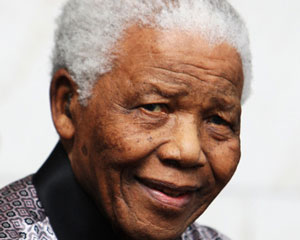
As I walked out the door towards the gate that would lead to my freedom, I knew if I didn’t leave my bitterness and hatred behind, I’d still be in prison. —Nelson Mandela.
Sunday Opinion with Kudzai Kwangwari
There is no doubt Nelson Mandela was a great man in terms of the kind of personality that he had and what he upheld as important in his life. Mandela made his life a life for all, a life of service only to others and not himself and his family. Such is the greatness of Nelson Mandela that he would stand against human oppression regardless of consequences.
His determination to see a free, democratic, non-racial and non-sexist South Africa would see him refusing to be freed in his 20th year in an apartheid jail even as he was already suffering from TB having had close to two litres of water drained from his lungs.
He expressed his worthiness and the worthiness of humanity by offering himself to mankind regardless of race, creed, sex, or religion. He is leaving behind a legacy whose main theme is that of love, forgiveness and care. Today, no South African, African or any citizen of this world can claim that they can’t be loving because they don’t know how to, because we were all taught by Madiba. We now all know the price and the prize of love, care and forgiveness — peace and harmony.
In many countries of the world, they have described him in different ways using different superlatives to describe the embodiment of humanity which he was, and remains.
For some great people, it shall be said they begin to live as soon as they die. Their legacy carries their life forward as citizens of the world reproduce their lives through their own lives.
I have avoided likening him to Jesus because he remained human in many ways, as can be demonstrated by the manner with which he not only yearned for freedom, but how he would sometimes make mistakes. There have been divergent views on whether his reconciliatory approach was good for South Africans or not. For some, he is a hero not much for what he did but much for what he avoided doing and how he suffered.
- Chamisa under fire over US$120K donation
- Mavhunga puts DeMbare into Chibuku quarterfinals
- Pension funds bet on Cabora Bassa oilfields
- Councils defy govt fire tender directive
Keep Reading
While in jail Mandela continued to value the need for a free and democratic South Africa where all South Africans live in peace, fairly as equals. He yearned for this and would not compromise. He never settled for less when it came to issues that elevate the traditionally marginalised South Africans to decent levels.
It may be reasonable then that when he came out of jail in 1990, many had expected him to challenge in a more pronounced way the structural inequalities that continued to hold even after the formation of the new democratic South Africa.
He preached a Rainbow Nation philosophy which was a symbol of his dream of a diverse, peaceful, equal and progressive South Africa, but the feeling is that he probably did not do enough when he became the founding Father of South Africa to deal with the apparent inequalities in many sectors including sport, economy, and agriculture.
Others feel while he embraced people of all races, he should have made all South Africans understand that there is need for all to live as equals with equal access to all resources South Africa had. He should have made policy intentions, at least to challenge the infrastructure which continues to sustain an unequal society even if he was in presidency for a short period of just four years.
Why didn’t he say to the white community in South Africa, “The new democratic South Africa requires us to share and have equal access to all we have without segregation.”
While there seems to be some semblance of peace and reconciliation in South Africa, we are aware of the fact that there are many South Africans who feel marginalised without benefitting from the wealth of South Africa. South Africa today stands as one of the richest countries on the continent grouped together with the now popular Brics countries, but many of her citizens have no access to this wealth. They live in shacks, on one meal a day, with no jobs.
They live above the dead and below the living. It is for this reason certain people feel that Madiba with all his soft power and love, could have set the tone in terms of reforming and giving birth to a South Africa where the relationship between whites and blacks South Africans especially, was that of equals.
When all is said and done, we all cannot fail to appreciate this man who was a hero — he suffered for what he believed in and stood for a better South Africa. He was brave and courageous in a way which made him the icon which he is today.











